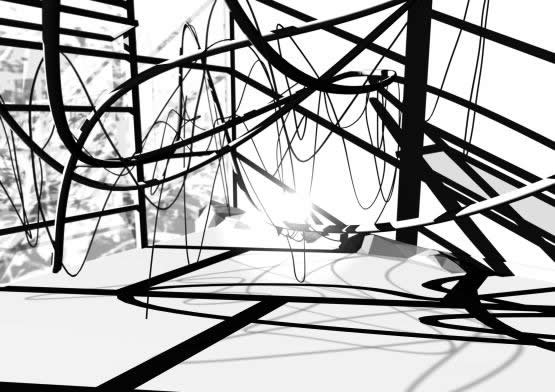Once upon a time (1999/2000), you couldn't get away from Moby. His music was perpetuated through adverts, since every song on his album Play had been licensed for commercial use, and as a result buyers practically knew the whole album before they'd picked it up off the shelf. Nowadays, however, you're hard pushed to see any adverts using one of those songs. This prevalence is perhaps a sign of how dated the material is.
The same cannot really be said for the music of folk-minimalists Penguin Cafe Orchestra. Their music is often found in television programmes and adverts, many have heard them without consciously knowing it, often producing an "Oh, this is that music!" response. And yet it is 20-30 years since these pieces were recorded and 12 since the group ended after the passing of leader Simon Jeffes. This likely stems from their timeless nature; they seem like arrangements of traditional pieces despite being original compositions, and they are never used as part of a period aesthetic.
First up, Music For A Found Harmonium, as performed here on a BBC broadcast in 1989. A Celtic-leaning cover of this by Patrick Street has been used recently on MFI adverts, and a BBC advert used the abhorrent dance remix by Steve Mac, a producer-of-choice for Simon Cowell and Louis Walsh.
From the same broadcast, Perpetuum Mobile, which has been used for Hewlett-Packard, Knorr and HP sauce.
And finally, Telephone and Rubber Band (here played over reversed footage from Fritz Lang's excellent Metropolis), which seemed destined for use by One2One/T-Mobile.
As a postscript, here is another piece of music that is also unconsciously familiar to many. If we think of big country houses onscreen, the music we hear is inevitably Michael Nyman's Chasing Sheep Is Best Left To Shepherds from the Peter Greenaway film The Draughtsman's Contract.
Friday 20 February 2009
Thursday 19 February 2009
Father Brian Eno
In an era of library music blogs and Trunk Records, there's an odd obscuro music fan to note in Father Ted's Father Dougal McGuire, who ticks the idiot box for the sterotype of an Irish man, who appears in a plethora of jokes with his brethren from across the Irish Sea.
We first encounter this music taste in the Song For Europe episode, when, admittedly, Dougal has, as Ted puts it, less of a record collection and more of a record. That record is by Nin Huugen and the Huugen Notes, which earned them fifth place in Song For Norway in 1976. The pair then shamelessly look to steal the tune for their own attempt at earning the right to represent Ireland in Europe's premier song contest, My Lovely Horse.
However, Dougal has apparently expanded his record to a collection by the time of the later episode, Chirpy Burpy Cheap Sheep, in which he is listening to BBC Sound Effects Volume 4. He also goes to the local shop to see if he can get Volume 5, without luck (this seemingly minor plot point then plays back into the main plot in a manner that befits Seinfeld).
Perhaps Dougal has fleshed his record out with, recent production for bland mega-sellers aside, records from the esteemable guest who appeared in the last episode of Father Ted.
We first encounter this music taste in the Song For Europe episode, when, admittedly, Dougal has, as Ted puts it, less of a record collection and more of a record. That record is by Nin Huugen and the Huugen Notes, which earned them fifth place in Song For Norway in 1976. The pair then shamelessly look to steal the tune for their own attempt at earning the right to represent Ireland in Europe's premier song contest, My Lovely Horse.
However, Dougal has apparently expanded his record to a collection by the time of the later episode, Chirpy Burpy Cheap Sheep, in which he is listening to BBC Sound Effects Volume 4. He also goes to the local shop to see if he can get Volume 5, without luck (this seemingly minor plot point then plays back into the main plot in a manner that befits Seinfeld).
Perhaps Dougal has fleshed his record out with, recent production for bland mega-sellers aside, records from the esteemable guest who appeared in the last episode of Father Ted.
Tuesday 10 February 2009
Subscribe to:
Posts (Atom)
